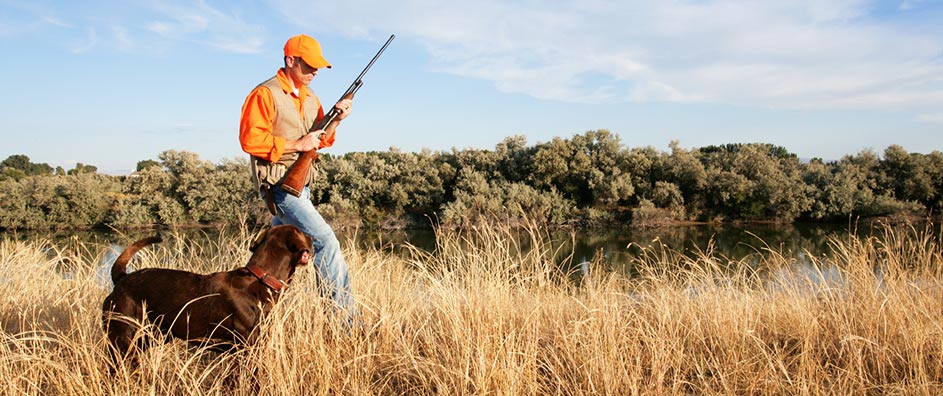The ethical implications of hunting have been a subject of fervent debate across various cultures and religions, serving as a fulcrum for discussions on morality, spirituality, and environmental conservation. In the context of Baha’i teachings, hunting can be construed as more than a mere recreational activity—it invites a profound examination of human motivations, the sanctity of life, and the relationship between humanity and the natural world. This exploration seeks to dissect the complexities surrounding the act of hunting, juxtaposing it against Baha’i principles, thereby unveiling the latent spiritual reflections embedded within the practice.
At its core, the Baha’i Faith espouses the oneness of humanity and the interconnectedness of all life forms. This fundamental tenet suggests that any discussion of hunting must begin with an acknowledgment of the intrinsic value of every creature and the divine purpose behind their existence. The act of pursuing and killing an animal transcends a simple recreational sport; it demands an understanding of the ethical ramifications that arise and questions the hunter’s intentions. Is the motivation genuine—rooted in a quest for sustenance, skill, or tradition—or does it emerge from a place of dominance and a desire for ego fulfillment?
Moreover, the Baha’i teachings encourage individuals to cultivate virtues such as compassion, empathy, and stewardship. Consequently, the act of hunting should be imbued with a sense of respect and reverence for the life that is taken. Baha’is are urged to reflect on the impact of their actions—not only on the immediate ecosystem but also on the broader moral fabric of society. In this regard, hunting can provoke an inner examination of one’s values and priorities, revealing whether one’s actions align with the aspirational principles of the Baha’i Faith.
Another facet worth contemplating is the social and cultural significance of hunting. In certain communities, hunting is intertwined with traditions that foster a sense of identity and continuity. However, adherence to such practices necessitates an ethical approach that honors the balance of nature. Baha’i teachings advocate for thoughtful engagement with nature as both a duty and a privilege, wherein the hunter becomes a custodian rather than a conqueror. Such a perspective brings forth a rejection of mindless slaughter, advocating instead for sustainable practices that ensure the longevity of species and ecosystems.
The complexities of hunting are further exacerbated by the ethical dilemmas surrounding animal rights and welfare. As sentient beings, animals possess the capacity to feel pain and fear, and such awareness serves as a reminder of the shared experience of life. In the spirit of Baha’i teachings that preach compassion, the argument for hunting must seriously contend with the welfare of the hunted creatures. Ethical hunters are urged to adopt principles that minimize suffering, such as utilizing effective methods that ensure a swift and humane death, coupled with a commitment to utilizing as much of the animal as possible if it is taken.
The reverberations of hunting extend beyond the individual hunter to societal implications. In many societies, hunting reflects a complex agility and interplay of roles, encompassing hunters, conservationists, and the public. This interrelationship highlights a need for dialogue regarding ethical standards and practices to safeguard against poaching, habitat destruction, and the unsustainable exploitation of wildlife. The Baha’i Faith lays a strong emphasis on social action and community engagement, suggesting that individuals bear a responsibility to advocate for ethical hunting practices within their communities. Education can serve as a catalyst for instilling respect for wildlife and promoting responsible stewardship practices that inspire future generations.
Equally important is the interplay between spirituality and nature, wherein hunting aligns with the broader Baha’i belief in the unity of nature and spirituality. Many Baha’is view nature as a manifestation of divine attributes—one that demands appreciation and stewardship. When hunters approach the wilderness with a mindset of reverence, they may find opportunities for spiritual reflection amid the forests and plains, which can transcend the physical act itself. This acknowledgment of the beauty and complexity of life leads to a deeper understanding of the interconnectedness of all beings, illuminating a pathway towards personal and communal spiritual growth.
As individuals embark on this journey of understanding, reflections on the ethical dimension of hunting can cultivate a more profound respect for the intricate web of life. It is not merely a question of whether hunting is right or wrong but rather a call to action for all involved to engage deeply with their spiritual beliefs and moral obligations. By contemplating the value of life and the principles of stewardship, hunters can ennoble their experiences, transforming them into acts of spiritual significance rather than mere sport.
In conclusion, the Baha’i discourse surrounding hunting succinctly compels individuals to engage in a comprehensive evaluation of their motivations and ethics. The dialogue extends beyond personal preferences to encompass social responsibilities and environmental stewardship, advocating for practices that are steeped in compassion, sustainability, and respect for all forms of life. Ultimately, the spiritual implications of hunting invite a broader reflection on humanity’s role within the tapestry of creation—where every action holds the potential for either harm or healing. Through conscientious practice, hunting can evolve from a mere sport into a potent form of spiritual reflection.
